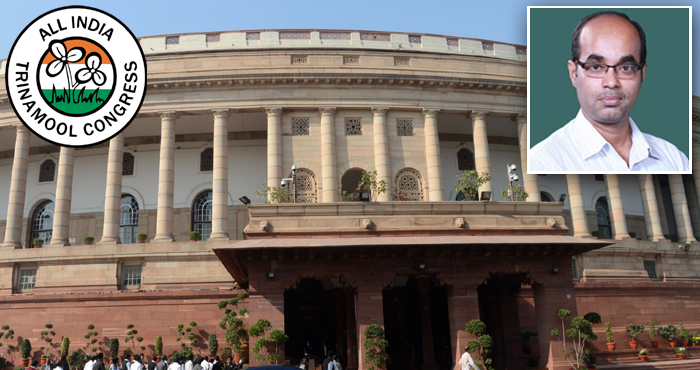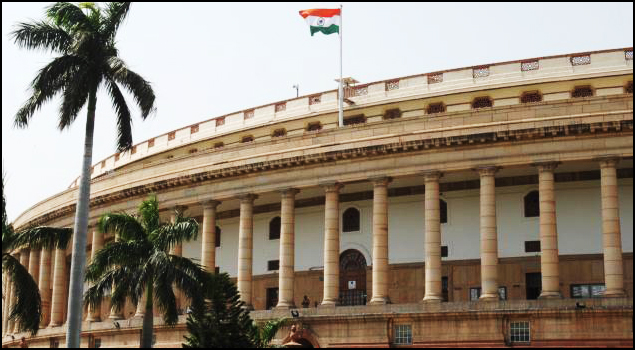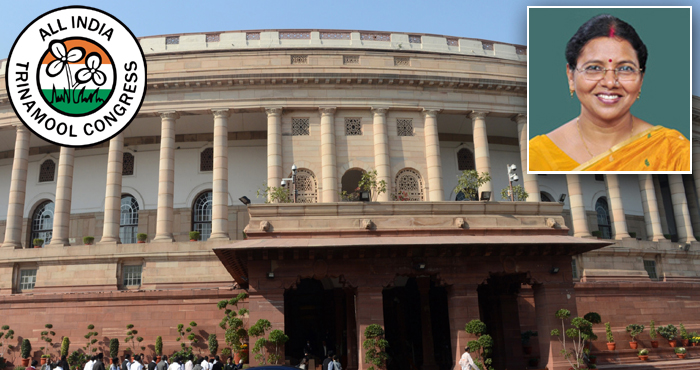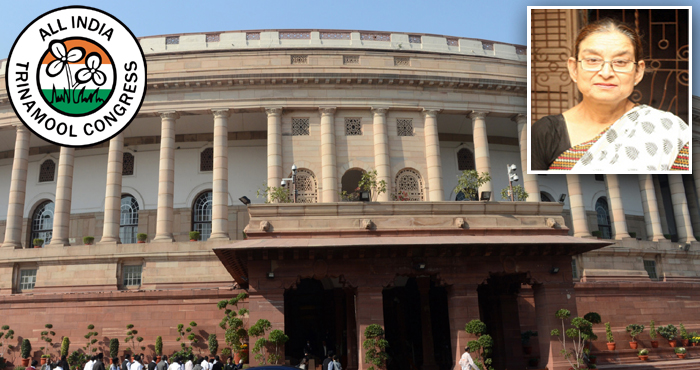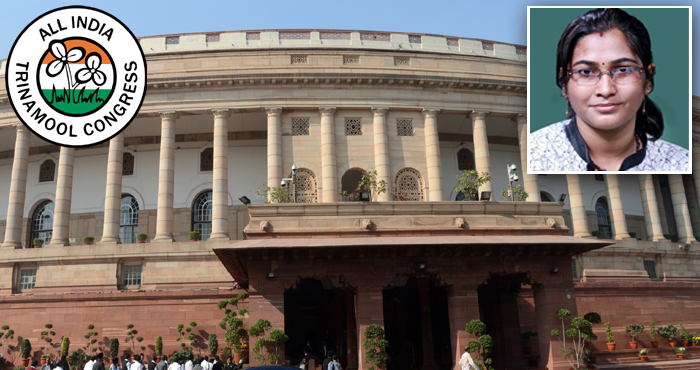For the third time, my esteemed friend Mr Arun Jaitley, a distinguished lawyer, has presented a dissertation on macroeconomic management in the form of the Union Budget, and for the third time I rise in this august House to offer my critique, a constructive one I hope, on his budget proposals.
Mr Arun Jaitley’s third Budget is better than his first two, but is it good enough for our toiling millions? Mounting evidence of agrarian distress combined with electoral setback in Bihar has ensured that this Government does not wish to be seen any more as a ‘suit boot ki sarkar.’ The ‘sarkar’ now wishes to appear in a simple farmer’s garb. But does the attire – putting on a farmer’s clothes – signal a real change of heart? To answer this question, we must closely examine the budgetary allocations. It would appear that a shift in rhetoric has run far ahead of any real shift in any economic priorities.
The Honourable Finance Minister could not bring himself to utter the phrase ‘farmers’ suicides’ in his lengthy Budget speech, yet the spectre of an agrarian crisis in Bharat has made him foreground agriculture and farmers’ welfare together with the rural sector as two of the nine pillars on which his budgetary edifice is constructed. There is a belated recognition that irrigation, agricultural extension services and rural roads count as infrastructure and require enhanced public investment. A long-term irrigation fund with an initial corpus of Rs 20,000 crore is a small beginning that has to be welcomed. It must be targeted towards those about whom Rabindranath Tagore had written, “Ora mathe mathe beej boney, paka dhan katey, ora kaaj korey’ (‘they sow seeds in our fields, they reap the harvest, they work’).
Mr Jaitley has resorted to a conjuror’s trick to claim a massive increase in the Ministry of Agriculture’s allocation. If you look at the figures, at first sight it appears that he has almost doubled the allocation for the Ministry of Agriculture, but a close look at the numbers reveal that as much as Rs 15,000 crore of this amount, the interest subsidy for extending credit to farmers, has simply been shifted from the head of the Finance Ministry to that of the Agriculture Ministry. If we discount for this sleight of hand, total spending on agriculture rises from a paltry 0.17% of GDP to 0.19% of GDP, not enough to make a material difference in the lives of those who work in our farms and fields.
Mr Jaitley has congratulated himself for providing the highest-ever allocation of Rs 38,500 crore for MGNREGA, a programme that had earlier been scorned by the Prime Minister. I do not want to enter into the quibble that we had between Shashi Tharoor and the Honourable Finance Minister as to whether it was in fact the highest-ever allocation that he had announced. I will simply say this that the rural employment programme is demand-driven and the Government is required by law to fund it. The State Government of West Bengal, led by Mamata Banerjee, has efficiently administered this programme, yet it is one of at least fourteen States that suffer from the slow and late disbursement of MGNREGA funds by the Central Government.
This Government from the very outset has been reasonably clear-eyed about the investment in roads and railways, ports and airports. The total projected outlay of Rs 2,18,000 crore in 2016-17 on roads and railways is the best that can be expected if the fiscal deficit target of 3.5% of GDP is met. I appreciate the Finance Minister, in his Budget speech frankly acknowledged that he had received two contradictory opinions about the fiscal deficit. In my opinion, an excessive tightening of the fiscal belt is neither necessary nor desirable in the current economic climate. I am therefore in favour of the announcement that he has made in favour of the review of the FRBM Act by an expert committee, as there is need for flexibility in the context of global volatility. The Finance Minister’s two earlier Budgets had grossly neglected health and education. There is a feeble attempt made this year to rectify past mistakes by restoring spending levels on some flagship health and education programmes. A mission to provide LPG connection to women members of poor households will begin to combat health hazards on cooking on open fires. However, the launch of a new health protection scheme comes nowhere close to addressing the looming health crisis facing our country. There is a yawning gap between the slogan of ‘healthcare for all’ and the dismal state of our public hospitals and primary healthcare centres. Women’s and children’s health and education continue to face the cold winds of neglect. The ICDS budget has actually been cut to only Rs 14,000 crore from Rs 15,394 crore, to be spent this year.
Just day before yesterday, we observed Women’s Day in Parliament. Is this the way, Mr Chairman, to treat our anganwadi workers and helpers who take care of our deprived and underprivileged children? The Budget promises to devote a larger share of allocation under Sarva Shiksha Abhiyan to the quality of primary education, assuming that the challenge of universalisation has been largely met. Both continued access and quality of school education deserve attention. So far as higher education is concerned, I have repeatedly stated in Parliament that the ritual of announcing a few new IITs, IIMs and AIIMS-like institutions every year does very little to achieve excellence in the field of higher education. It results in spending on brick and mortar for a few years, doing nothing for the improvement of the quality of human resources. Since 2014, I have been calling for investment in 10 of the most promising institutions of higher education to make them truly world-class. That call seems to have been heard in the Finance Minister’s announcement that an enabling regulatory architecture will be provided to 10 public and 10 private institutions to emerge as world-class teaching and research institutions. The formulation of a detailed scheme still lies in the future, and the devil is likely to be in the details. We need to ensure that there is good mix of Central and State institutions in the 10 public institutions that are selected as part of this scheme. I hope that the Honourable Finance Minister, who is sitting here, will, in his reply, give us more information on the kind of enabling regulatory structure that he has in mind for the proposed world-class institutions. I hope very much that at least one or two heritage institutions from West Bengal, a State that has led in the field of higher education in this country historically, will find their place in the final list of 10 public institutions to be selected.
The Honourable Finance Minister constantly reminds us of the Asian norm of a corporate tax rate, pegged at 25%, and has taken tentative steps towards that goal in this Budget. The manifesto of the ruling party had proclaimed that spending on education would be raised from 3% to 6% of GDP, that is the norm in much of Asia. We still await the Finance Minister’s road map towards fulfilling that campaign promise.
As a member of the External Affairs Committee, I share Shashi Tharoor’s dismay that the allocation for this key ministry has been reduced from Rs 15,085 crore in 2015-2016 to Rs 14,662 crore in 2016-2017. Arun Jaitley ji must be more generous to Sushma ji, not just because she is a wonderful colleague but because it is essential for the efficient and imaginative conduct of our foreign policy. We cannot meet our foreign policy objectives by having our Prime Minister flying so low to different destinations. We need a larger and a more capable foreign policy establishment suited to meeting the challenges of the 21st century.
The banking crisis has elicited a few new initiatives from Mr Jaitley in the sphere of financial sector reforms; we welcome them. But I’m sure you will also agree there is much more to be done. Only this morning we had a debate here about a big defaulter who has just escaped from this country.
An area where the Budget falls woefully short is in its response to the jobs emergency. There are various nice-sounding schemes that have been announced but they have not yet helped our youth to stand up. A budgetary provision of Rs 1,000 crore to incentivise employers to hire unemployed persons is a pittance. The youth of this country are becoming increasingly impatient and restive, and see Mr Modi’s promise of remunerative jobs in his campaign as nothing but a mirage. The youth are being alienated for other reasons; you cannot alienate them on the jobs front as well.
Healthy output growth with anaemic job growth will spell political doom for this Government. I say to the Government of this day – you campaigned on hope; don’t dash the hopes of the young.
On the taxation side, we are relieved that the Government has withdrawn its ill-advised proposal to cast covetous eyes on the life savings of our senior citizens. I think your niyath was good, your intention was good. I know that Jayant Sinha has lived in America for many years, you have a chief economic advisor who has international experience. I know that there are advanced countries that require pensioned funds to be taken in the form of annual distributions. In addition to having a comprehensive social security net, the governments and employers of those countries provide a good deal of choice as to where pensioned contributions are invested. India has neither choice nor a proper social security net, and that is why for once I agree with the Prime Minister when he responded to public pressure and directed to the finance ministry to roll back this particular measure. The salaried class, under today’s circumstances, must have full freedom on what to do with their pensions.
I remember being very worried when my mother drew her provident fund as a senior citizen to contest two parliamentary elections in the late 1990s. I had thought then it was a very rash thing to do. But what else could she do as an honest and public-spirited person? When will this Government introduce State funding for elections to root out corruption in our political system? We are much beholden to big business who finance political parties and political candidates.
As before, this year’s Budget relies less on direct taxes (in fact, the finance minister has given away some of the direct taxes that he could have collected) and more on indirect taxes, an imbalance that is inherently regressive. Taking advantage of low global oil prices, the Government has raised revenues by indirectly taxing petroleum products instead of passing on the benefits to consumers.
By all means, tax the rich merchants. By all means, introduce transparency in their transactions. But the proposed excise tax on gold jewellery may, in fact, adversely impact goldsmith workers who are poor but skilled artisanal workers. So please direct your attention to the merchants who may be avoiding the system but please also take care of the many artisanal workers who rely on employment in this industry. This year’s Budget is littered with cesses and surcharges that will […] of tax revenues, and needless to say, it violates the spirit of cooperative federalism. Already in this financial year, the Centre has collected a larger proportion of the revenues than the Finance Minister had anticipated at the beginning of this year. In conclusion, Mr Chairman, Mr Jaitley’s third Budget is cautious like his earlier ones. Even though it does attempt some course corrections, reacting to changing political and economic circumstances, the discourse remains trapped in the binary between pro-rich versus pro-poor. In his anxiety to being labelled pro-rich, the Honourable Finance Minister has not been bold enough to introduce some pro-market measures that may, in fact, benefit the poor, beyond making them recipients of direct benefits transfers of LPG and fertilizer subsidies.
The expectation that had been raised of big bang economic reforms since 2014 has finally ended with a whimper in 2016. Our farmers and our youth will demand a reckoning in 2019, if not sooner, whether the promises made in the Budget of 2016, backed by inadequate resources so far, have been in fact redeemed or not.


